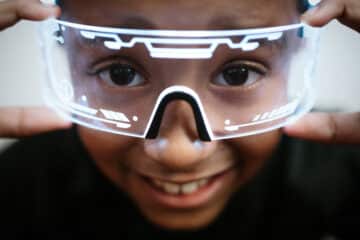Changing Exam Systems in Singapore, Japan and Hong Kong
 Officials in Singapore, Japan and Hong Kong are reconsidering how student scores on examinations are used to determine their options during the next phase of their education. In Singapore, Prime Minister Lee Hsien Loong announced that the grading system for its Primary School Leaving Examinations is being revamped in order to help ease undue pressure on young children and their parents, according to the Wall Street Journal. The exams are administered to 12-year-olds in Singapore and play an important role in determining which secondary school track students enter. “We must recalibrate to keep the education system open and focus our efforts on things which matter more than exam grades in the long run,” Mr. Lee said in his National Day Rally speech, an annual policy address. The idea is to replace the scoring system with a wider grading band similar to what is being used for secondary and pre-college exams in Singapore. In addition, officials are discussing allowing secondary schools to consider broader admissions criteria including character attributes like leadership skills, resilience and commitment.
Officials in Singapore, Japan and Hong Kong are reconsidering how student scores on examinations are used to determine their options during the next phase of their education. In Singapore, Prime Minister Lee Hsien Loong announced that the grading system for its Primary School Leaving Examinations is being revamped in order to help ease undue pressure on young children and their parents, according to the Wall Street Journal. The exams are administered to 12-year-olds in Singapore and play an important role in determining which secondary school track students enter. “We must recalibrate to keep the education system open and focus our efforts on things which matter more than exam grades in the long run,” Mr. Lee said in his National Day Rally speech, an annual policy address. The idea is to replace the scoring system with a wider grading band similar to what is being used for secondary and pre-college exams in Singapore. In addition, officials are discussing allowing secondary schools to consider broader admissions criteria including character attributes like leadership skills, resilience and commitment.
Meanwhile, the Japanese government’s Education Rebuilding Implementation Council has begun discussions on reforming the university entrance examination system with an eye towards introducing a new achievement test for high school students that they could take several times during the school year and then submit their best scores to universities. The Japan News quotes Education Minister Hakubun Shimomura as saying, “Should we continue knowledge-oriented screening in which students are judged by the single indicator of a test score? University entrance exams have various problems and need to be reformed.” It is unclear whether a new achievement test would replace the current “all or nothing” entrance exams. In the same article, a senior official is quoted as saying, “It’s difficult for one test to have two functions—ensuring the standards of high school education and screening students for university admissions. Whether we’ll keep the national center test will depend on how the achievement test is introduced.”
In Hong Kong, the Education Bureau is piloting a program that would allow more Hong Kong students to apply to mainland universities based on their A-level results from high school course exams. Previously, admission was based on scores from either the National Higher Education Entrance Examination, called the Gaokao, or the Joint Entrance Examination, which was designed for students wishing to apply to both Hong Kong and mainland universities. The bureau reports that last year 971 out of 4,200 applicants received offers of admission, and this year 2,300 students will be admitted through the scheme. The program will help Hong Kong students whose scores do not qualify them for a place at any of the universities in Hong Kong. Attending a mainland university can be much less expensive than studying at a Hong Kong university. However, studying on the mainland comes with some downsides. Courses in mainland universities are taught in Mandarin Chinese rather than the Cantonese used in Hong Kong. And for those hoping to return to Hong Kong after graduating from a mainland school, finding a job can be a challenge since many Hong Kong employers view a degree from a mainland university as less credible than one from a Hong Kong university. While fluency in English is a highly valued skill in Hong Kong, it is not emphasized in mainland schools. Read more at the Hong Kong Standard.
Education Reports of Note
A review of the latest education reports from the top-performing countries finds that Australian teachers are leaving the profession at alarming rates, New Zealand—a world leader in literacy for a long time—is having literacy problems and after school programs in Canada are paying off in the long term. Let’s start in Australia – a study from Monash University finds that half of Australian teachers leave the profession within five years. The research, to be published later this year, cites “unsupported classrooms, overwhelming workloads and employer preferences for short term contracts” as the reasons why teachers leave. Philip Riley, the lead researcher, says that this exodus from the profession is costing Australia a “huge amount of money”.
 While the rest of the world’s literacy rates have been improving, New Zealand’s have flat-lined over the past decade, according to a study completed by Massey University in New Zealand. Most disturbing are the low achievement rates for Maori and Pasifika children, which report coauthor Professor James Chapman compares to literacy rates in Georgia and Trinidad and Tobago. According to the report, New Zealand has made “misguided policy decisions” which funneled over $40 million into a 30-year-old reading recovery program, despite advice from literacy experts since the early 1990s who have warned that the program is not working. The study shows that many low performing students are unable to finish the reading recovery program, and many are withdrawn from the program early when they do not meet expected rates of progress. Read more at Stuff.co.nz.
While the rest of the world’s literacy rates have been improving, New Zealand’s have flat-lined over the past decade, according to a study completed by Massey University in New Zealand. Most disturbing are the low achievement rates for Maori and Pasifika children, which report coauthor Professor James Chapman compares to literacy rates in Georgia and Trinidad and Tobago. According to the report, New Zealand has made “misguided policy decisions” which funneled over $40 million into a 30-year-old reading recovery program, despite advice from literacy experts since the early 1990s who have warned that the program is not working. The study shows that many low performing students are unable to finish the reading recovery program, and many are withdrawn from the program early when they do not meet expected rates of progress. Read more at Stuff.co.nz.
And from Canada, the Factor-Inwentash Faculty of Social Work at the University of Toronto has released a study evaluating the academic and social benefits of after school programs. The study, the first of its kind in Canada, analyzed 39 community-based after school programs. The findings show that children who regularly participate in high quality programs for several years are more likely to complete their homework, achieve higher grades and have a much lower dropout rate. Children involved in the programs also show improved social skills and increased self-esteem, which in turn can help improve math and reading scores. The report outlines what factors parents should look for in a high quality after school program, such as a mix of academic, social and recreational activities that stimulate active learning, a low student-to-staff ratio, low staff turnover, and staff with post-secondary education and training. Read more at Canada News Wire.




